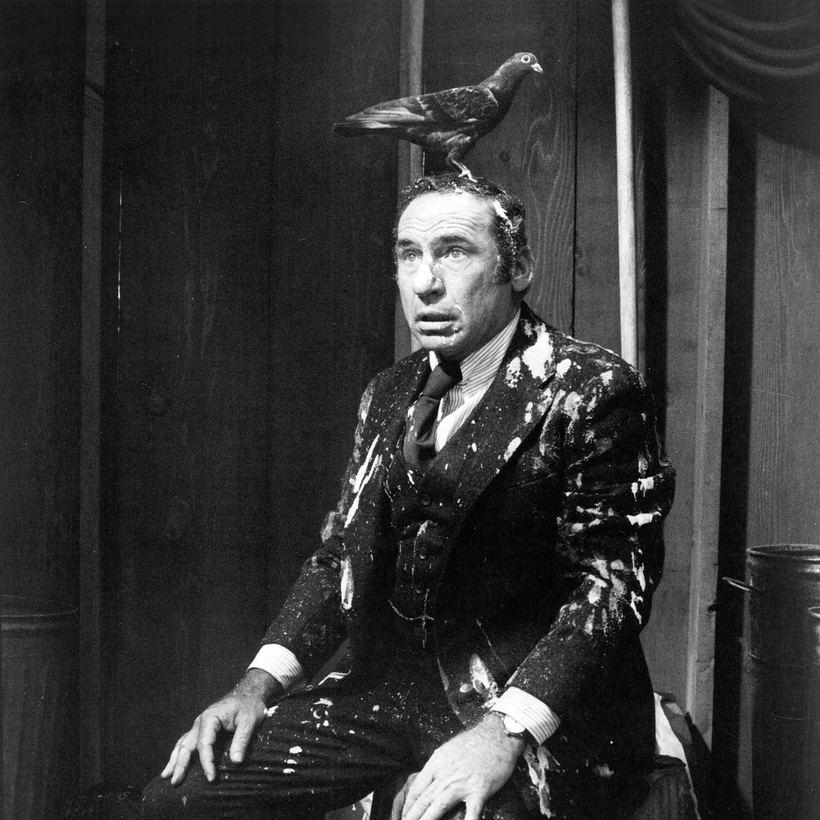Working on my biography of Mel Brooks, I was struck by how such a phenomenal, colossal success could be such a poet of failure. Well, maybe more precisely, of success through failure.
It’s most famously on display, of course, in his first movie, The Producers (1967), which was dedicated to the proposition that it might be easier to be a success with a flop than with a hit; but there’s a through line.
Brooks, who grew up Jewish in Brooklyn in the 20s and 30s, was the co-creator of one of the most successful television comedies of the 60s, Get Smart, a James Bond spoof whose protagonist stumbles and fumbles and flops his way through his missions.
Gene Wilder’s Dr. Frankenstein (pronounced at first FRONK-en-STEEN, as you’ll recall) goes through numerous trials, ranting and raving, until finally Peter Boyle comes to life, in 1974’s Young Frankenstein.
Even Brooks’s Moses, in 1981’s History of the World, Part I (its long-teased second installment airing on Hulu this week, a generation later), delivers only 10 Commandments to the Israelites because he dropped the stone tablet with the additional 5.

Part of the reason for Brooks’s attraction to the approach, I think, was his own personal narrative. As I describe in my book, the kind of adulation he now enjoys, at 96—and the adulation he craved, ever since losing his father at a very early age—came to him after years of being either in someone else’s shadow (as Sid Caesar’s personal hanger-on, Carl Reiner’s 2,000-year-old scene partner, Anne Bancroft’s comedy-writer husband; all these descriptions are unfair to him, but they were leveled, and they must have stung) or suffering professional setbacks. (Brooks was involved with a wide string of flops between the industry-defining success of Your Show of Shows, which ran from 1950 to 1954, and the industry-changing bombshell of The Producers, both onstage and on-screen, and in reading about them, you’ll learn surprising things about the seeds of his future work.)
And so it’s perhaps not surprising that he identified, for many years, with the guy on the outs who, by dint of talent, effort, moxie, and soul, manages to make good.
The adulation Mel Brooks craved came to him after years of being either in someone else’s shadow or suffering professional setbacks.
But there’s more to it than that, which gets, for me, to the heart of what Brooks’s success means. For Brooks—who often signed his letters “Your obedient Jew, Mel Brooks,” though obedience was hardly his nature—Jewishness was essential to who he was, and to how he saw himself: someone who, especially at that time in American history, wasn’t necessarily afforded the opportunities of Main Street, or Easy Street. Set up for failure, in other words.

But, in failure, Brooks found the seeds of success. In embracing the way that those all-American popular entertainments fell short—in other words, by parodying them—Brooks would be able to turn those failures into his success. In my book, I describe Brooks as a kind of “loyal opposition”: someone who understands America precisely because, as a kind of outsider, he’s studied it with the affection of someone who desperately wants to be on the inside.
And that’s exactly what happened, as Brooks’s approach—his kind of comedy, his kind of Jewish comedy—became a central part of the American cultural experience, and he became, deservedly, one of the country’s most celebrated cultural heroes.
Some failure that guy is. He even fails at failing.

Jeremy Dauber’s Mel Brooks: Disobedient Jew is out now from Yale University Press

